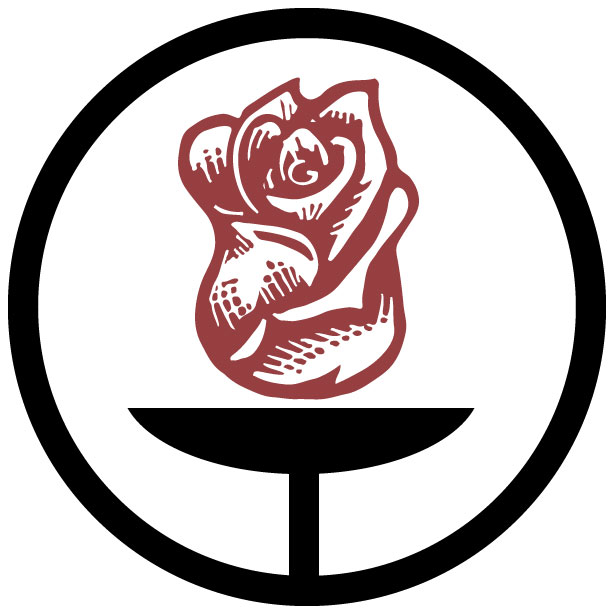
Rose was deeply involved in the Ferguson conflict, as her internship site was at the First Unitarian Church of St. Louis. All clergy were asked to wear vestments to public witness events.
Starting Ministry in Ferguson, Missouri, 2014
When Mike Brown was shot dead in Ferguson, MO, I had just begun my ministerial internship in St. Louis. I was therefore asked, in my first three months of internship, to be present to a city in crisis. I, of course, had a lot of questions about how to minister, but I found myself simply going to the places that people gathered, and listening to what people were saying, being present to and curious about the situation. Mostly I just went and was there if needed, as a chaplain might be in a hospital. I was deeply troubled by the conflict, and spent much of those first months in a deep theological and personal turmoil.
I relied heavily on the wealth of social analysis that I gained in the racially and economically diverse community at Union Theological Seminary. At Union, I was asked to examine my whiteness mercilessly, and therefore have practice relinquishing the idea that my experience of people of color and poor people is the legitimate narrative. I spoke frequently with my network of racially politicized friends and colleagues to help me understand my work, and listened keenly for insight in conversations with my partner (who is a man of color) about his experiences with the police. In the congregation in St. Louis, I helped form a Women Of Color group with mentorship from the UUA Multicultural Ministries, helped start a AO/AR/MC task force, developed and taught a class on African American UU History, was present with congregants at marches, mediated conflicts between activists and property owners, and preached regularly on poverty, race, and political uprisings. I helped organize vigils, and went to actions and trainings. I spoke with colleagues around the country, and I met with the conservative members of the congregation when they wanted to talk about the issue.
As a leader, I see that I am expected to do for the congregation what is impossible for me to do for myself: understand. As I often feel in my writing, sermons and thoughts on leadership grab ahold of me and will not let go. My ministry in Ferguson had me in a vice-grip, and I sweated blood and tears over it. For, I myself was grieving and torn. But, as a service to my congregation, it was my privilege to push and struggle through my personal emotional landscape and produce leadership and services that cut through congregational debates (see Broken Covenant under “sermons”). We as a religious community must speak to the heart of the issue: how our religious beliefs call us forward into action and accountability. As our world turns, it is becoming more and more apparent to our congregations that we need to support Anti-Racism, Anti-Oppression, and Multiculturalism efforts. My ministry has and will continue to be inextricably tied to social justice. I will expect the congregation I serve to think reverently and deeply about what we actually mean by beloved community.
We are a new generation facing new and urgent obstacles, and we must ask the questions: what stories do we tell about ourselves? how do we treat difference within our communities, and how much does our narrative include non-UUs, poor people, non-citizens, people of color? who does our narrative make outsiders? what would it be like if when I said, “we,” it meant not just UUs, but all of humanity? All of this to explore and articulate the question: who are we? and what does that mean about what we do?
We are loving people who choose to put all living things at the center of our world; we are intelligent people who are honored to live according to our values; passionate people who believe that following justice is the only way towards hope. For, what is worship and community if inside and outside our walls our fellow humans struggle, unseen and ignored?
